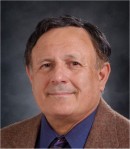
Plenary Lecture
The Design of Sensor Networks for Detection of Faults in Smart Power Grids

Professor Demetrios Kazakos
Texas Southern University
USA
E-mail: demetrios114@yahoo.com
Abstract: The development of secure and dependable Smart Grids in Power Systems is an important design goal. The design of a dedicated sensor network that will monitor the secure and dependable, failure resistant, operation of a Smart Grid is a major objective of our research in such systems. The main thrust of our effort is to advance the use of statistical methodology to model the failure of a link or group of links or of a subsystem of a Smart Grid. We propose and study methods for failure detection in a Smart Grid by viewing such failures as the cause creating abrupt changes in the traffic patterns of the power flow. Such approaches have been effective in monitoring the reliability of Communication Networks. In our current work, we expand the same approach for monitoring the secure and dependable operation of Smart Power Grids. The main idea is that a sudden fault of a link, groups of links or of a subsystem will cause an abrupt change in the energy or current flow patterns. In this talk we discuss the use and advances of the novel approach of using statistical tools of decentralized fastest change detection as a building tool of a theoretical and practically implementable change detection and an associated fault detection system. There is a need to advance the state of the art, making the current approaches more sophisticated and flexible to respond to changing, dynamic failure patterns. It is expected that the resulting algorithms and monitoring sensor network systems will improve the reliability and dependability of Smart Power Grids. This research has been conducted at Texas Southern University during the past 3-4 years.
Brief Biography of the Speaker: Dr Demetrios Kazakos received his Diploma in Electrical and Mechanical Engineering from the National Polytechnic University of Greece. He then started graduate his graduate studies in the United States. He received a Master of Arts degree in Electrical Engineering from Princeton University and a Doctor of Philosophy degree from the University of Southern California, specializing in Statistical Communication Theory. In 1980, he joined the Electrical Engineering Department of the University of Virginia,where he stayed until 1993.
In 1992, he was elevated to the grade of Fellow of IEEE, for his research in two areas: Enhanced Algorithms for Multiuser Multiaccess Networks and Statistical Pattern Recognition. In 2009, he was elevated to the grade of IEEE Life Fellow.
In 1993 he accepted the position of Head of the Electrical and Computer Engineering of the University of Southwestern Louisiana. At the same time he has always been a very active participant in IEEE conference organizing and editorial activities. He was Editor of the IEEE Transactions on Communications for 5 years, Technical Program Chair for two major IEEE Conferences, and member of the Technical Program Committee for several IEEE and other conferences.
In 1983 he started a new company named HITEC, INC, which undertook several Research and Development projects in Information Technology, funded by the U.S. Department of Defense and the European Community.
In 2001, he undertook the position of Professor and Chair of the Electrical Engineering and Computer Science Department at the University of Toledo. In 2004, he moved to the University of Idaho, as Professor and Chair of the Electrical and Computer Engineering Department.
From 2006 to 2008, he was Dean of the College of Science and Technology at Texas Southern University. From September 2009 to September 2011, he was at the National Science Foundation in the position of
Program Director responsible for the Program: “Centers of Research Excellence in Science and Technology”.
Overall, he has published about 165 refereed journal papers, book chapters and conference proceeding papers, as well as two books.